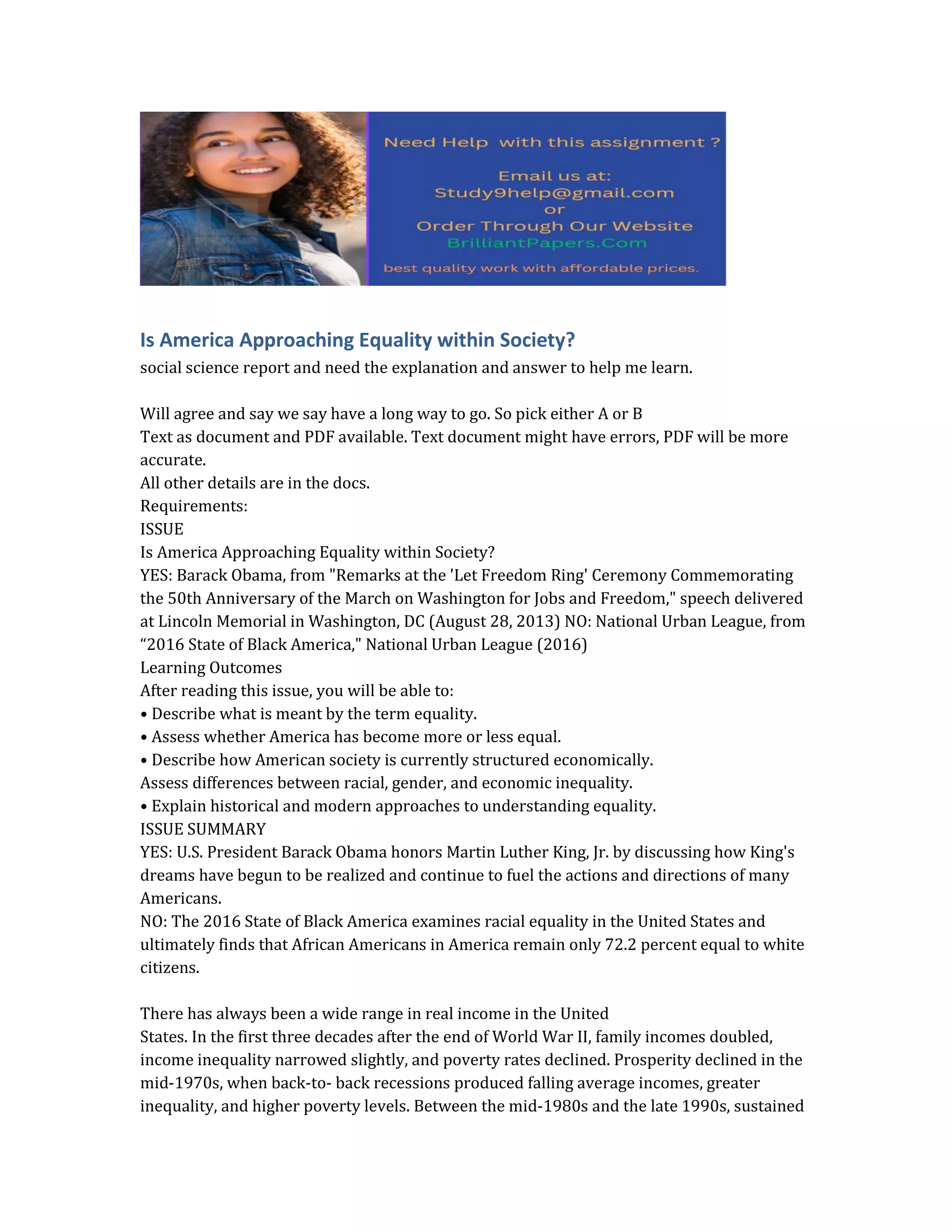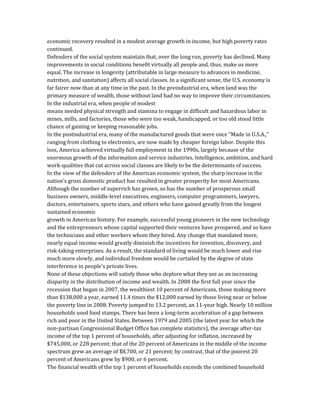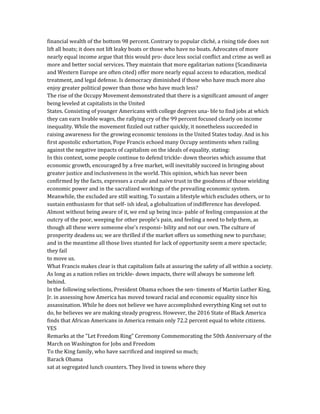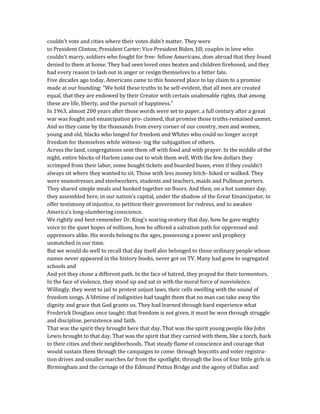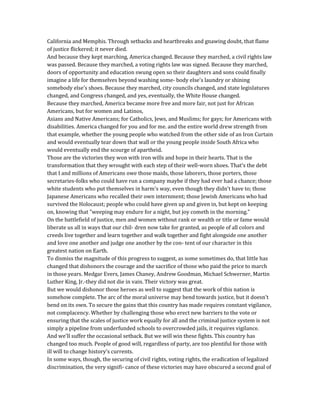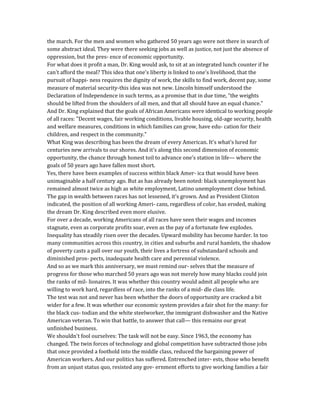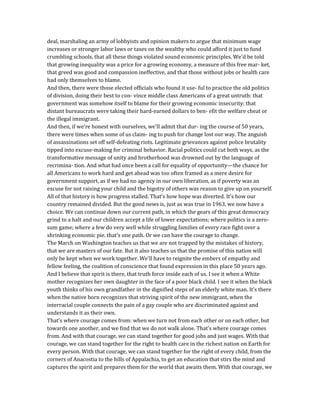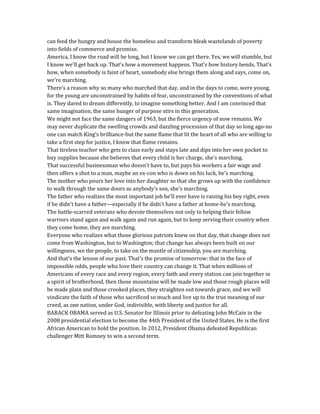This document discusses issues of equality and inequality in American society. It presents arguments on both sides of the question "Is America Approaching Equality within Society?". The YES side, represented by a speech from President Barack Obama, argues that while more progress needs to be made, America has made steady advances towards racial equality since the civil rights movement. However, the NO side, represented by a report from the National Urban League, finds that African Americans remain only 72.2% equal economically to white citizens based on metrics like income, wealth, employment and poverty rates. The document also discusses historical trends in inequality, differences between racial, gender and economic inequality, and debates around the impacts of capitalism on equality.
